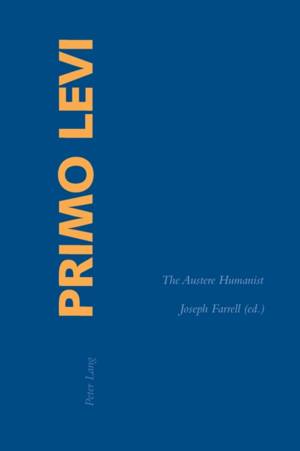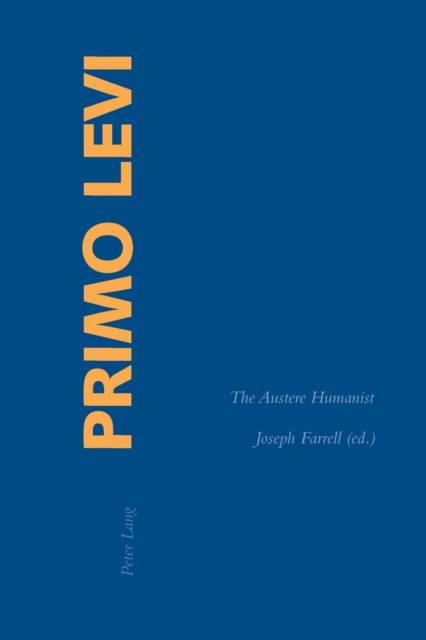
Bedankt voor het vertrouwen het afgelopen jaar! Om jou te bedanken bieden we GRATIS verzending (in België) aan op alles gedurende de hele maand januari.
- Afhalen na 1 uur in een winkel met voorraad
- In januari gratis thuislevering in België
- Ruim aanbod met 7 miljoen producten
Bedankt voor het vertrouwen het afgelopen jaar! Om jou te bedanken bieden we GRATIS verzending (in België) aan op alles gedurende de hele maand januari.
- Afhalen na 1 uur in een winkel met voorraad
- In januari gratis thuislevering in België
- Ruim aanbod met 7 miljoen producten
Zoeken
Omschrijving
Primo Levi has been identified in the public mind as the supreme witness to the barbarism that was the Nazi Holocaust but he was ambivalent about having that role thrust upon him. He also wished to be judged as a writer who, in addition to the autobiographical works on his experiences in the death camps, wrote poetry, produced volumes of sci-fi stories, authored novels and contributed critical essays to newspapers on a range of topics and writers. No one has the right to ignore or downplay the 'testimony' Primo Levi offered, but it is time to examine the wider vision inherent in his work and to explore the tradition in which he operated.
Levi was one of the great wisdom writers of his age, whose ethical authority, somewhat to his own embarrassment, was accepted in many fields. Several contributors to this collection of essays see him as a proponent of Enlightenment values, or as heir to a longer Humanist tradition. Even after enduring Auschwitz, he held fast to a notion of the dignity of the human person, and no man did more to re-establish, however quizzically, the secular basis for such beliefs. His overall standing as writer is the subject of this book.
Levi was one of the great wisdom writers of his age, whose ethical authority, somewhat to his own embarrassment, was accepted in many fields. Several contributors to this collection of essays see him as a proponent of Enlightenment values, or as heir to a longer Humanist tradition. Even after enduring Auschwitz, he held fast to a notion of the dignity of the human person, and no man did more to re-establish, however quizzically, the secular basis for such beliefs. His overall standing as writer is the subject of this book.
Specificaties
Betrokkenen
- Auteur(s):
- Uitgeverij:
Inhoud
- Aantal bladzijden:
- 220
- Taal:
- Engels
Eigenschappen
- Productcode (EAN):
- 9783039100699
- Verschijningsdatum:
- 12/02/2004
- Uitvoering:
- Paperback
- Formaat:
- Trade paperback (VS)
- Afmetingen:
- 152 mm x 229 mm
- Gewicht:
- 299 g

Alleen bij Standaard Boekhandel
+ 267 punten op je klantenkaart van Standaard Boekhandel
Beoordelingen
We publiceren alleen reviews die voldoen aan de voorwaarden voor reviews. Bekijk onze voorwaarden voor reviews.









